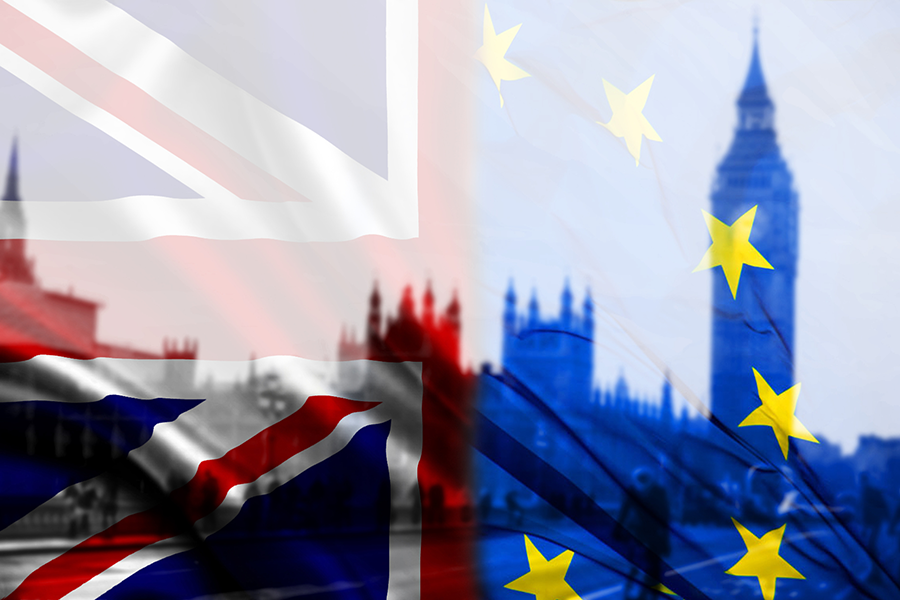
By Professor Aditya Goenka
The Department of Economics, University of Birmingham
In 2019, Boris Johnson said “We’ve got a deal that’s oven-ready. We’ve just got to put it in at gas mark four, give it 20 minutes and Bob’s your uncle.” The deal was finally sealed on Christmas Eve 2020 and rushed through Parliament to be served in time for the new year. What has emerged from the oven?
There is relief that a no-deal Brexit (‘Australian style’) has been avoided. However, the UK-EU Trade and Cooperation Agreement reflects the ground realities. The consequence of a market with about 66 million bargaining with one with 446 million, the third largest market after China and India, is reflected in the deal. The isolation imposed by European and other countries on 20 December in response to the new strain of the coronavirus has highlighted the geo-political realities facing the country which can easily be cut-out of trading and travel routes with ease.
The deal agreed does not cover services – banking and insurance, legal services, accountancy, engineering services, architecture, doctors, pharmacists, vets, etc. – where UK has a comparative advantage. This matters since UK had a trade deficit of 49 billion pounds with the EU, but an 18 billion surplus in services, which represents 42% of UK exports to EU. Thus, individuals who serve clients in the other jurisdiction will need to have their qualifications approved. The financial sector, which is the largest sector of UK economy, has also drawn a short straw. The ‘passporting’ rights that allowed firms to sell services without additional regulatory clearance have ended. While the UK has extended the passporting rights to EEA countries, this has not been fully reciprocated. On the first full day of trading, 6 billion worth of trades in Euro-denominated shares switched from London to European markets. This is without even considering the relocation of business that has already taken place and of offices and personnel.
The deal is a quota-free deal, i.e. there are no restrictions on quantity goods manufactured in the UK to be sold in the EU and vice versa. It is also tariff-free – there are no taxes imposed on goods manufactured in the UK to be sold in the EU and vice versa, which would be designed to restrict imports and exports. However, there are still custom duties to be paid on goods sold by a UK company in the EU that are not manufactured domestically.
Thus, an iPhone bought by a Spanish customer from a UK retailer will attract import taxes and perhaps local VAT. Many retailers have suspended cross-border trade. Haulage is bypassing UK, freight costs between the UK and France have quadrupled. There are global shortages of containers and there are reports of freight ships avoiding UK ports to speed up turnaround. This was during the holiday period when there was considerable stock-piling, so the issues are likely to grow.
Some supporters of Brexit acknowledge that the UK is skint and see this is as an opportunity to de-regulate and reduce standards in UK. However, there is a commitment to a level playing field and without resolution of disputes in the European Court of Justice, there is a possibility of reduced restriction to markets and tariffs on products if there is a unilateral reduction of standards.
This is the first time that negotiations have taken place to restrict rather than to ease trade. The list of restrictions is endless – movement of people, agricultural products, education, security, mobile roaming, insurance, etc. There is effectively a border in the Irish Sea for movement of goods and there are renewed calls for another Scottish independence referendum.
Even the fishery sector, which was a key point for the UK in the negotiations but is only 0.02% of the economy, is deeply unhappy with the agreement as it has not delivered the increases in catch quotas expected. What does not seem to be factored in is that about 75% of the output is exported mainly to the EU and that most of the products consumed in the UK are imported. The increased red-tape and paperwork could make the most lucrative market unviable.
There is a perfect storm raging in the form of COVID-19 and sand in the wheel of trade brought on by the exit from the EU. The UK will have to find resources to deal with both. Brexit has been done but the realisation of what this means to the economy, government finances, and well-being have been overshadowed by the third wave of the pandemic. Have we been stitched up like kippers? Time will tell.
The views and opinions expressed in this article are those of the author and do not necessarily reflect the official policy or position of the University of Birmingham.
